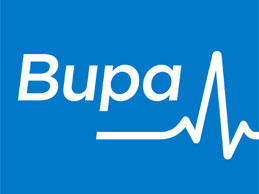Your local Chiropractic FRIENDLY, GCC REGISTERED CHIROPRACTORS IN SOUTHAMPTON & FAREHAM
Book our Chiropractic Services today
WHAT IS CHIROPRACTIC?
Chiropractic care focuses on diagnosing, treating, and preventing conditions related to the muscles, joints, and nervous system — particularly of the spine.
Chiropractors use a combination of manual techniques, such as spinal manipulation, mobilisation, soft tissue therapies, as well as rehabilitation exercises to restore normal movement, reduce pain, and optimise physical function.
At Watt Health, chiropractic is never a “whack and stack” experience. We take the time to assess you thoroughly, explain your diagnosis, discuss your options, and deliver tailored, hands-on treatment in a private, professional setting.
“Excellent facility, lovely and clean. The Chiropractic treatment I have received has been excellent. Very professional and friendly. Would definitely recommend to anyone looking for chiropractor.”
J. Adams
At Watt Health, chiropractic care is about much more than quick adjustments or rushed appointments.
We provide evidence-based, personalised chiropractic treatment delivered by fully accredited, 5-year university-educated chiropractors, all within private treatment rooms and a collaborative multidisciplinary setting.
We believe in ethical, effective care — no unnecessary x-rays, no “one-size-fits-all” pre-paid packages, and no pressure to commit to hefty long-term plans.
Your recovery, health, and empowerment are always our priorities.
Conditions Commonly Treated by High Performance Chiropractic
Chiropractors are trained to assess, diagnose, and manage a wide range of musculoskeletal conditions, including:
Lower Back Strain Treatment
Dull aches, sharp pains, or stiffness in the lower back, sometimes radiating into the hips or legs.
Common causes: facet joint dysfunction, disc irritation, or muscle strain.
Sciatica Treatment
Shooting pain, numbness, or tingling down the leg, often caused by nerve irritation from a lumbar disc issue or spinal stenosis.
Neck Pain
Localised neck discomfort, reduced range of motion, or tension headaches.
Posture, muscle imbalances, or cervical joint restrictions often play a role.
Headaches (Cervicogenic and Tension-Type)
Headaches stemming from neck dysfunction, often felt around the base of the skull, forehead, or temples.
Shoulder Pain
Restricted movement, weakness, or impingement pain from conditions like rotator cuff injuries or postural strain.
Mid-Back and Rib Pain
Stiffness or sharp discomfort between the shoulder blades or around the rib cage, often exacerbated by desk posture or poor breathing patterns.
Sacroiliac Joint Dysfunction
Pain in the low back or buttock region, sometimes radiating to the thigh, from irritation of the joints connecting the spine to the pelvis.
Sports Injuries
Joint, muscle, or ligament injuries caused by overload, trauma, or repetitive strain.
High Performance Chiropractors
At Watt Health, our team of highly trained chiropractors bring together years of clinical expertise, advanced education, and a genuine passion for helping patients achieve better health and lasting results.
Each chiropractor is registered with the General Chiropractic Council (GCC) and committed to delivering ethical, personalised care that puts your wellbeing first.
ABOUT OUR CHIROPRACTORS
At Watt Health, your chiropractic care is in expert hands. All of our chiropractors:
- Are Fully accredited and registered with the General Chiropractic Council (GCC)
- Are Qualified to Master’s Degree in Chiropractic
- Are Extensively trained in spinal manipulation, soft tissue therapies, rehabilitation and clinical assessment
- Are Committed to evidence-based practice and ongoing professional development
- Pride ourselves on delivering patient-centred care, not a one-size fits all
- Takes the time to fully understand your health history, goals, and lifestyle to create a personalised treatment plan designed to help you recover, move better and stay active long-term
- Genuine care and understanding
- Tailored hands-on care
- Clear communication
- The right care at the right time
At Watt Health, you can expect:
Facet Joint Dysfunction: Small joints in the spine that become irritated or stiff, causing localised pain.
Lumbar Disc Herniation: A disc bulge or tear that can press on nearby nerves, often leading to sciatica (pain radiating into the leg).
Lumbar Spondylosis (Arthritis): Degeneration of the spinal joints and discs, leading to stiffness and discomfort.
Sacroiliac Joint Dysfunction: Inflammation or mechanical restriction of the joints between the spine and pelvis.
Muscle Strains and Ligament Sprains: Often caused by poor posture, lifting injuries, or repetitive movements.
Mechanical Low Back Pain: A general term for back pain without a serious underlying condition, often due to movement or loading faults.
At Watt Health, we assess not just your symptoms, but your lifestyle — providing ergonomic advice, strengthening programmes, and posture correction strategies to support your health long-term.
Our Multi-Disciplinary, Patient-Centred Approach
We believe the best outcomes come from seamless collaboration between healthcare disciplines.
Our chiropractors work hand-in-hand with our physiotherapists, sports therapists, massage therapists, and clinical Pilates instructors, ensuring you receive:
A complete, well-rounded assessment
Access to the most appropriate treatment at every stage with expert clinicians
Dynamic care plans that evolve with your recovery
Holistic support, from hands-on treatment to rehabilitation and lifestyle advice
You’re not just another number — you’re part of a genuine healthcare partnership.
Lower Back Pain Management with a Multidisciplinary Approach
Lower back pain is one of the most common musculoskeletal complaints, affecting up to 80% of people at some point in their lives. At Watt Health, we take a comprehensive, multidisciplinary approach to diagnosing and managing lower back pain. Our team of chiropractors, physiotherapists, sports massage therapists, and clinical Pilates instructors work together to ensure you receive the most effective, individualised care.
Understanding Lower Back Pain: Pathophysiology and Common Diagnoses
Lower back pain can arise from a variety of structures, including joints, discs, muscles, ligaments, and nerves. In simple terms, pain may result from mechanical dysfunction (how your body moves), inflammation, nerve irritation, or a combination of these factors.
Common diagnoses contributing to lower back pain include:
- Facet Joint Dysfunction: Small joints in the spine that become irritated or stiff, causing localised pain.
- Lumbar Disc Herniation: A disc bulge or tear that can press on nearby nerves, often leading to sciatica (pain radiating into the leg).
- Lumbar Spondylosis (Arthritis): Degeneration of the spinal joints and discs, leading to stiffness and discomfort.
- Sacroiliac Joint Dysfunction: Inflammation or mechanical restriction of the joints between the spine and pelvis.
- Muscle Strains and Ligament Sprains: Often caused by poor posture, lifting injuries, or repetitive movements.
- Mechanical Low Back Pain: A general term for back pain without a serious underlying condition, often due to movement or loading faults.
How We Manage Lower Back Pain
At Watt, we don’t believe in a “one-size-fits-all” model. Your management plan is carefully tailored based on a thorough assessment, diagnosis, and your personal goals.
Chiropractic Care
Our chiropractors use skilled spinal manipulation, mobilisation techniques, soft tissue therapy, and rehabilitation exercises to restore spinal alignment, reduce nerve irritation, and optimise function.
Physiotherapy
Our physiotherapists focus on improving movement patterns, strength, flexibility, and posture. Techniques may include manual therapy, exercise prescription, pain education, dry needling, and taping.
Sports Massage Therapy
Sports massage helps to release muscle tension, break down scar tissue, and improve circulation. It’s an excellent adjunct for relieving muscle tightness and speeding up recovery.
Clinical Pilates
Clinical Pilates emphasises core stability, posture correction, and functional strength. It is particularly beneficial for retraining movement patterns, building resilience, and preventing future episodes of lower back pain.
Why Choose a Multidisciplinary Approach?
Lower back pain is often multifactorial — involving joints, discs, muscles, and even movement habits. A multidisciplinary team means we can address every contributing factor to your pain:
- Speed up recovery
- Reduce recurrence
- Improve overall function and quality of life
- Minimise reliance on medication or invasive procedures
Our clinicians communicate seamlessly to ensure you get the right care at the right time, adapting your plan as you progress.
Take Control of Your Recovery
If you’re struggling with lower back pain, don’t wait. Early, targeted treatment gives you the best chance of a full recovery. Book an appointment with our team today and experience the difference a truly multidisciplinary approach can make
WE ACCEPT PRIVATE HEALTH INSURANCE REFERRALS FOR CHIROPRACTIC AND PHYSIOTHERAPY SERVICES FROM BUPA, AXA HEALTH, VITALITY, WPA, AVIVA AND MANY MORE





Other Conditions Chiropractors May Help Manage
Chiropractors are trained to assess, diagnose, and manage a wide range of musculoskeletal conditions and their associated symptoms. In addition to spinal pain and dysfunction, chiropractors may assist in the management of:
Temporomandibular Joint Dysfunction (TMD): Supportive care for jaw-related pain, tension, or stiffness through manual therapy and exercises.
Benign Paroxysmal Positional Vertigo (BPPV): Assessment and repositioning manoeuvres (e.g., Epley) may help relieve certain types of positional dizziness.
Paediatric Musculoskeletal Complaints: Including postural issues, growing pains, or tension-related discomfort—care is always provided within appropriate clinical guidelines and in communication with other healthcare professionals when needed.
Symptoms Associated with Osteoarthritis: Chiropractic care may support mobility, joint function, and symptom relief in individuals with mild-to-moderate osteoarthritic changes.
Peripheral Neuropathies (e.g., carpal tunnel syndrome, sciatica): Management of symptoms where nerve irritation is linked to musculoskeletal dysfunction—often involving manual therapy, ergonomic advice, and rehabilitation strategies.
Postural-Related Pain: Including upper back, neck, and shoulder tension due to prolonged sitting, device use, or poor ergonomic habits.
Headaches Arising from the Neck (Cervicogenic Headaches): Management may involve joint mobilisation, soft tissue techniques, and postural retraining.
Sports-Related Injuries and Overuse Syndromes: Such as tendinopathies, joint sprains, or muscle strains—focusing on return-to-function plans and injury prevention.
Pregnancy-Related Musculoskeletal Pain: Including pelvic girdle or lower back discomfort during pregnancy—care is adapted to each stage and individual presentation.


